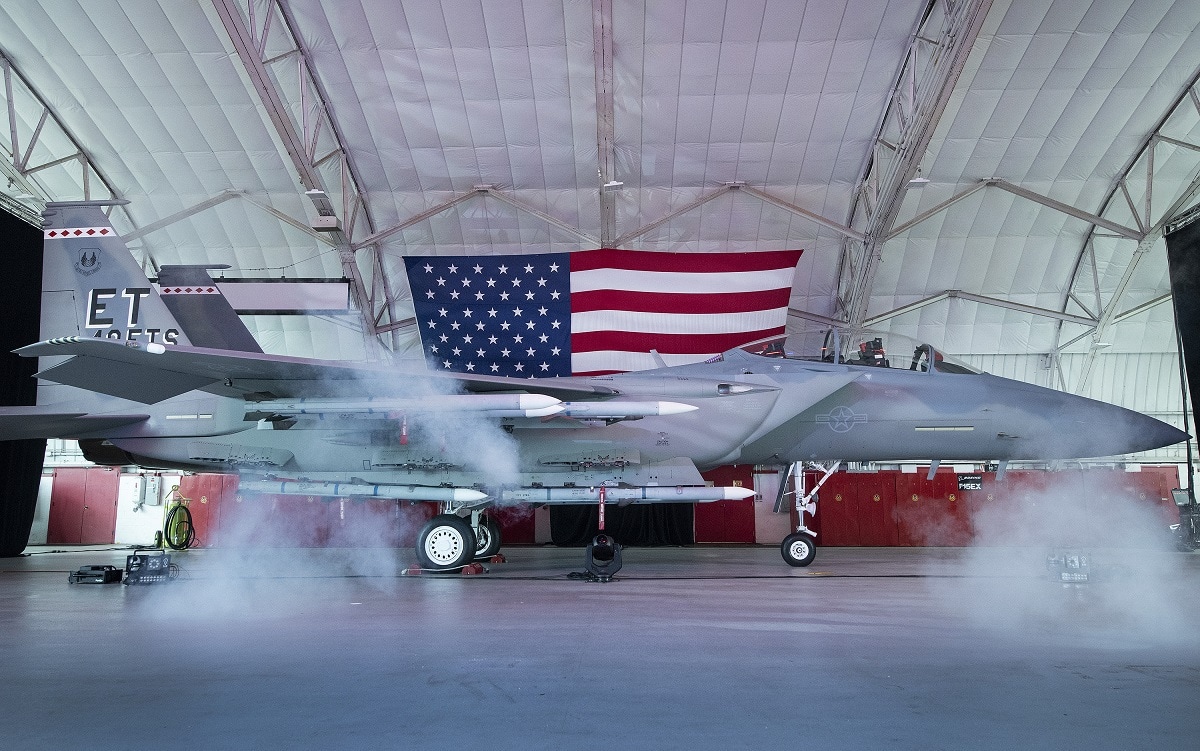The F-15EX Eagle II is the latest and greatest edition of McDonnell Douglas’ (now Boeing’s) venerable and battle-proven (as in a mind-boggling 104:0 kill ratio during 40-plus years of service, with nary a single loss in air-to-air combat) F-15. The Eagle fighter jet is often touted in some circles as a rival to the Lockheed Martin F-35 Lightning II. Understandably, one may scoff at first as to how a souped-up version of a 1970s vintage fighter jet could possibly hold a candle to a 5th generation joint strike fighter like the F-35.
However, upon further review, as noted by former SOFPREP columnist Alex Hollings, even the older model F-15Cs and F-15Ds actually beat out the F-35 in a handful of crucial air-combat metrics. Metrics examples include “The F-15’s top speed, of slightly over Mach 2.4 or 1,875 miles per hour … leaves platforms like the F-35 — with a top speed of just 1,230 miles per hour or so — in its dust. Even the top-of-the-line F-22 can only achieve Mach 2.2. This gives the F-15 the crown of America’s fastest fighter jet.”
Yet the U.S. Air Force is already cutting back spending on it, which in turn begs the questions: Why is the Air Force so (or why the ix-nay on the EX-Nay, if you will?) and: What exactly do we know about the F-15EX anyway?
What’s Old is New, and What’s New is Old
The F-15EX variant was initially proposed by Boeing in 2018 as simply the F-15X; as aviation reporter Oriana Pawlyk noted at the time in an article for Business Insider, “The strategy would mimic what Boeing did with its Block III F/A-18 Super Hornet: taking an old concept, but boosting the jet fleets to be more potent in current and future missions with a larger variety of weapons, extended range, advanced targeting and sensor systems, and better fuel efficiency, among other enhancements.” During the initial stages of this proposal, both single and two-seater variants were offered, dubbed F-15CX and F-15EX respectively, and both with the same exact capabilities.
Ultimately the USAF decided to go only with the “twofer,” which will reportedly have the option to fly with a single pilot or with both pilot and Weapons Systems Officer (WSO, affectionately known in Air Force slang as the “Wizzo” and the “GIB” [Guy/Gal In Back], a position immortalized in song), with the WSO being an important addition on complex missions. which could also feature the command and control of “Loyal Wingman” drones in the future. This decision made dollars and sense, considering the fact that only the two-seater variant of the F-15 is still in production (the Strike Eagle, immortalized in song by retired USAF Lt. Col. Dick Jonas AKA “the fighter pilot’s minstrel,” Vietnam War fighter pilot turned professional singer) and the F-15EX program is all about the most cost-effective and immediate solution that can be fielded to refresh the Eagle fleet.
The standup of the EX program was assigned a greater sense of urgency after then-SECDEF Robert Gates killed the F-22 Raptor program in 2009 and redirected the F-22’s supply chain toward cannibalization to support F-35 production. The F-15EX made her maiden flight on February 2, 2021. Improvements include the AMBER weapons rack to carry up to 22 air-to-air missiles, infrared search and track, advanced avionics and electronic warfare equipment, AESA radar, a 50 percent increase in chaff and flares capacity, and a revised structure with a service life of 20,000 hours. What’s more, F-15EX will be able to use four underwing pylons instead of the two usually seen on the F-15C and F-15E.
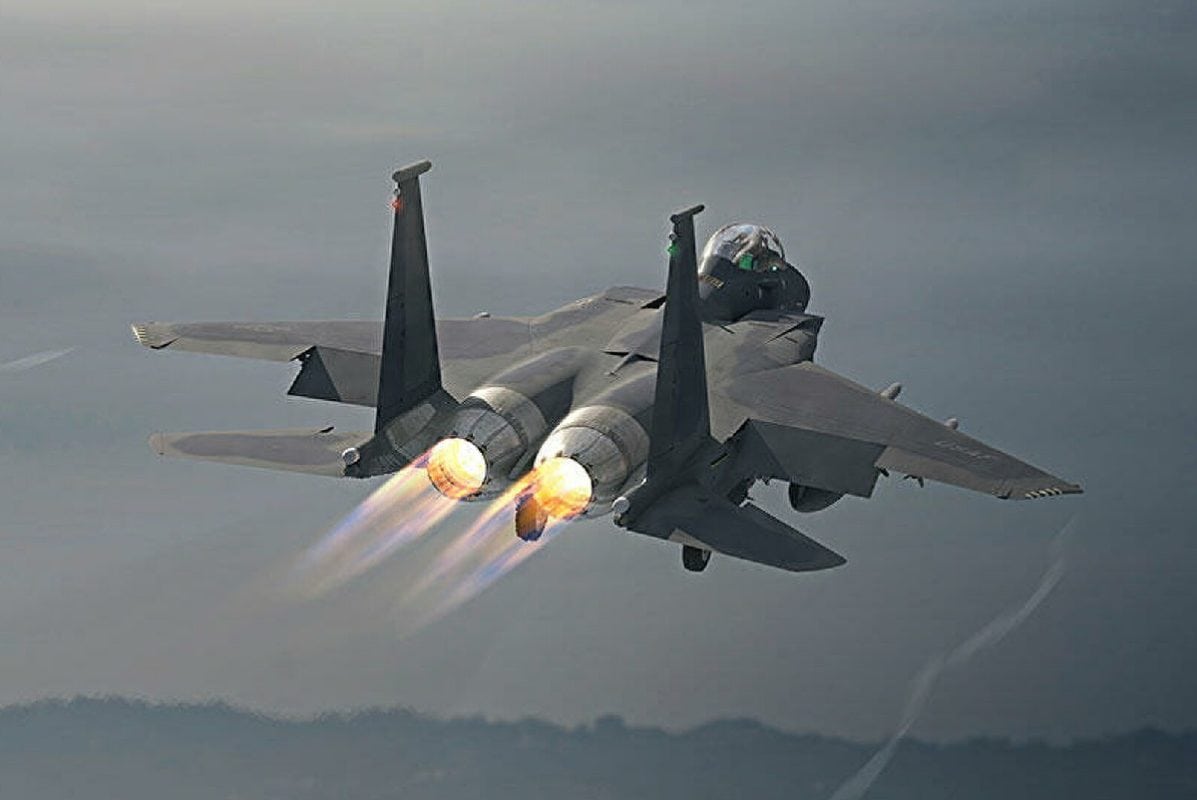
Boeing F-15EX. Artist Image from Boeing.
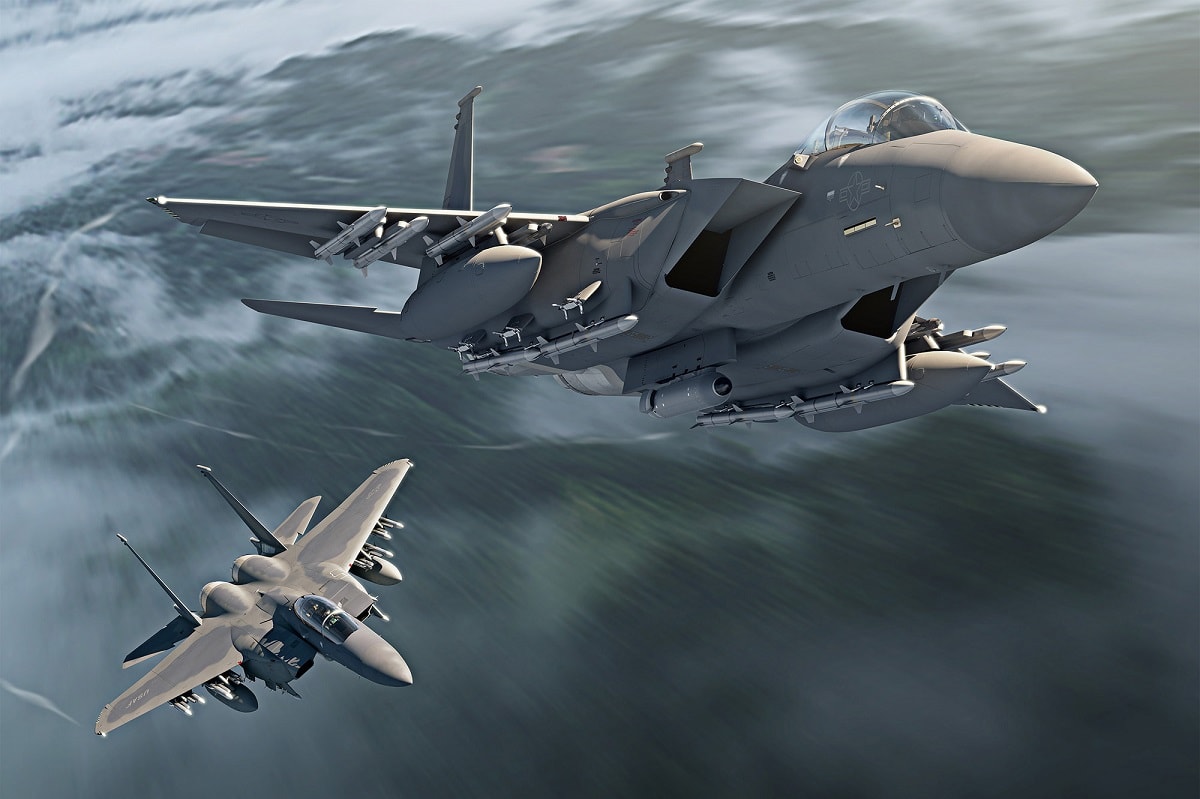
Two Boeing F-15EX fighters armed with air-to-air missiles. Image Credit: Boeing.
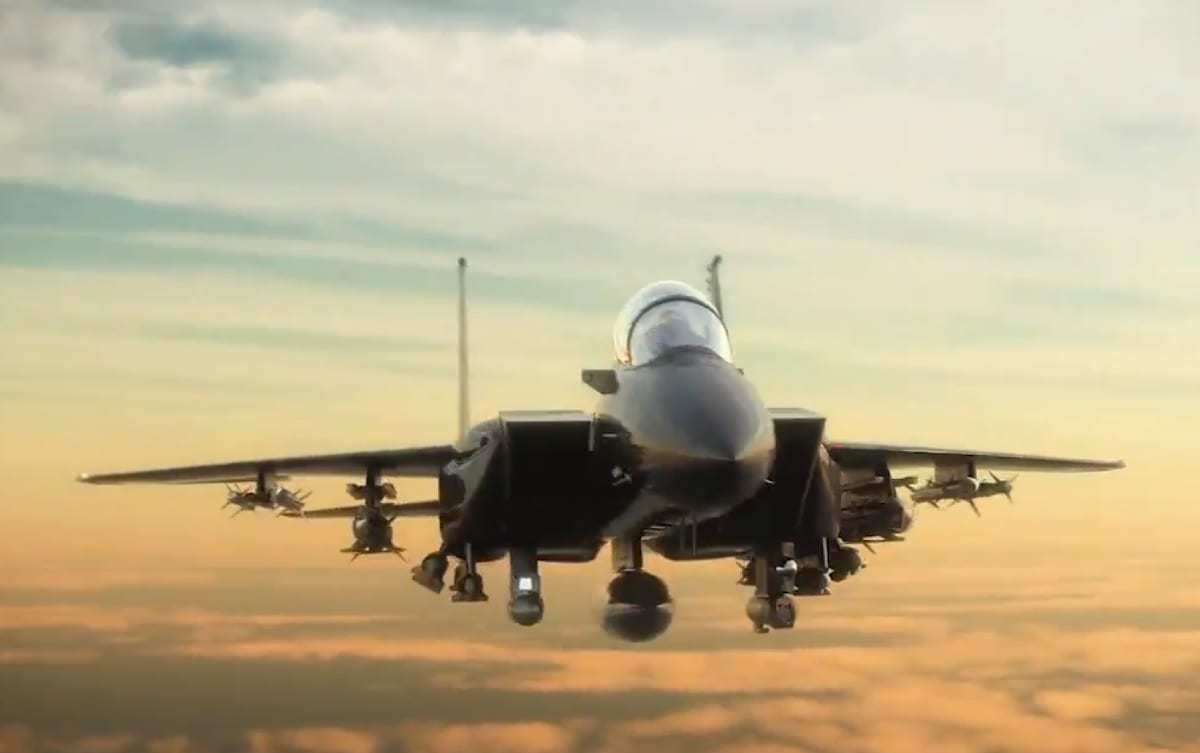
F-15EX Screenshot from Boeing Video
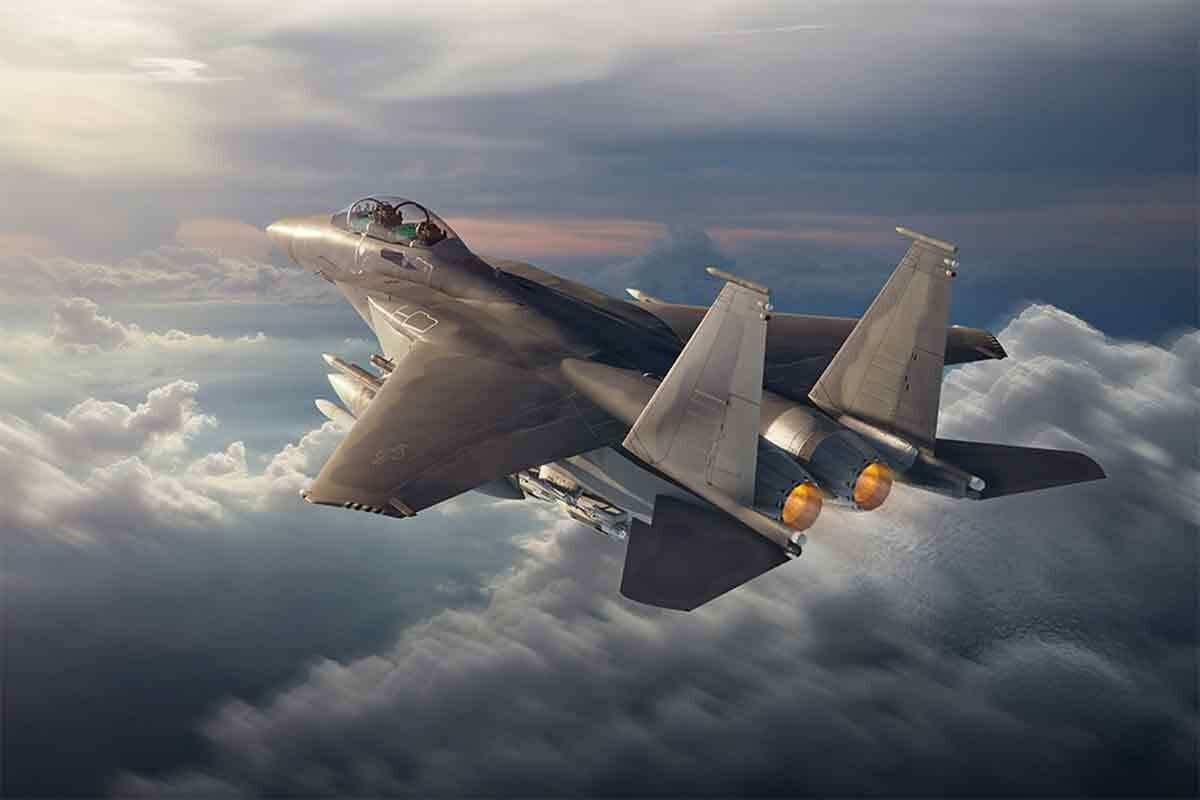
F-15 X (Image: Boeing)
Okay, So Then Why the Budget-Busting?
In the immediate term, the F-15EX is not actually getting the AX(e) (if my readers will pardon my latest lousy joke). Indeed, the 2023 budget request asks to buy 24 F-15EXs, double the number requested in the previous fiscal year; however, the Air Force’s J-books reveal that the service plans to reduce the overall buy of the EX from 144 to 80—a 44% decline. As to why the USAF is carrying out such a drastic divestment, Lt. Gen. David S. Nahom, deputy chief of staff for plans and programs, attributed it to competing priorities in the budget, particularly the need to modernize two legs of the nuclear triad. Whilst this rationale is certainly understandable on the one hand, on the other hand, this is a matter of no small concern, in the light of (1) the continuing decline of availability for the F-15 C/D airframes, (2) lingering teething issues of the F-35, and (3) the continuous advancement of adversaries’ fighter capabilities such as China’s Chengdu J-20.
Time will tell whether or not this budgetary decision will come back to haunt the Air Force.
Christian D. Orr is a former Air Force officer, Federal law enforcement officer, and private military contractor (with assignments worked in Iraq, the United Arab Emirates, Kosovo, Japan, Germany, and the Pentagon). He has also been published in The Daily Torch and The Journal of Intelligence and Cyber Security.

